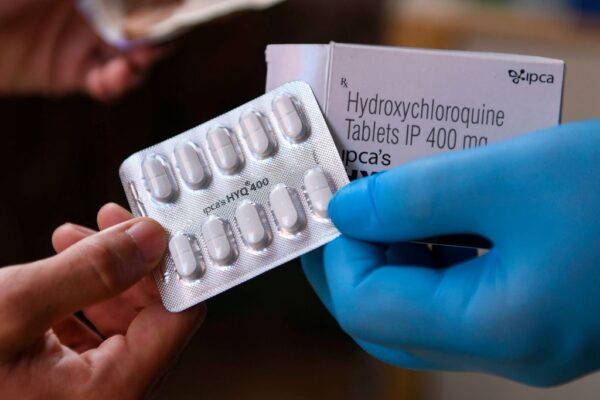
Results of the first randomized, placebo-controlled clinical trial testing hydroxychloroquine in the prevention of Covid-19 are in. The verdict: It doesn’t work, at least not to prevent the disease.
The study was launched by researchers at the University of Minnesota on March 17 and took place at centers across the U.S. and Canada. It enrolled 821 adults who had been exposed to the SARS-CoV-2 virus due to living with someone who was infected or as healthcare workers, but who were not themselves hospitalized. Participants received the drug as a post-exposure prophylaxis. Results were published in The New England Journal of Medicine on Wednesday.

As Healthcare and Biopharma Companies Embrace AI, Insurance Underwriters See Risks and Opportunities
In an interview, Munich Re Specialty Senior Vice President Jim Craig talked about the risk that accompanies innovation and the important role that insurers play.
The data showed that 11.8% of participants who received hydroxychloroquine developed Covid-19, compared with 14.3% who received a vitamin pill as a placebo. However, despite the numerically lower number of people in the treatment group who did not develop the disease, the result did not reach statistical significance. Indeed, the confidence interval was negative 7 to 2.2, and the p-value was 0.35. With such a wide confidence interval and a p-value so high above the standard threshold for statistical significance of 0.05 or less, there is no way to rule out whether the result was due to chance alone.
“Our objective was to answer the question of whether hydroxychloroquine worked to prevent disease or did not work,” said Dr. David Boulware, an infectious disease physician and lead investigator in the study, in a statement. “While we were disappointed that this did not prevent Covid-19, we are pleased that we were able to provide a conclusive answer.”
The study provides the most definitive evidence yet that hydroxychloroquine is not effective against Covid-19. It also adds to a growing body of evidence from non-randomized, but very large studies published in major journals indicating that the drug did not have any effect in patients already hospitalized with Covid-19.
But its publication comes the day after the largest of those studies published in another major medical journal, The Lancet, raised concerns about the data that it used and the company providing the data, Chicago-based Surgisphere. The study was an analysis of data from about 96,000 hospitalized patients with Covid-19 published last month showing that hydroxychloroquine and chloroquine not only ineffective at treating the disease, but that patients receiving it had higher rates of death and heart problems. NEJM also published an expression of concern about another study using Surgisphere data on Covid-19 patients receiving certain cardiovascular drugs.
However, scrutiny of the data raised a number of concerns about methodology and data integrity, such as a purported lack of an ethics review, errors and other problems, according to an open letter to The Lancet’s editor. An investigation by The Guardian found that the company’s employees included a science fiction writer working as a science editor and an adult content model. Surgisphere has defended the study.
Despite questions raised by the Lancet study, it nevertheless followed two other large studies – a retrospective cohort study by researchers at the State University of New York using data on 1,438 patients published in the Journal of the American Medical Association and a Columbia University study of 1,376 patients also in NEJM – that likewise found no benefit from the drug.
Photo: Narinder Nanu, AFP, via Getty Images








